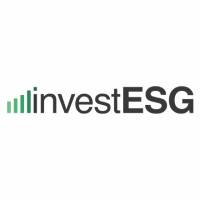Deforestation in the context of the TNFD Recommendations: leveraging prior progress, utilising existing datasets and going further with additional guidance
As a co-founder and official piloting partner of the Taskforce on Nature-related Financial Disclosures (TNFD), Global Canopy has welcomed the publication of the final TNFD Recommendations. For the first time, this provides organisations with guidance and disclosure recommendations that help them identify, disclose and act on their material nature-related issues. This is a significant step for finance and business towards a data-driven, global response to the nature crisis in a push to drive financial flows away from nature destruction towards nature positive outcomes.

INSIGHT by Fiona Pedeboy, Researcher, Global Canopy
For more than a decade, Global Canopy has developed tools and datasets to encourage organisations to assess and act on deforestation within their value chains. Deforestation presents both material climate and nature-related risks for organisations, and its assessment and management is fundamental to achieving net zero targets. The indicators used to assess financial institutions and corporations on their deforestation and human rights commitments over the past nine years, as part of Global Canopy’s Forest 500 are highly relevant to the TNFD’s final Disclosure Recommendations. Whilst Global Canopy’s tools such as ENCORE, Forest IQ and Trase can support financial institutions as they assess in line with the TNFD’s voluntary assessment approach LEAP.
Finally, detailed guidance on deforestation assessment processes such as Global Canopy’s Deforestation Free Finance Roadmap and Due Diligence guidance, can help financial institutions go deeper in their assessment of deforestation risks and move towards deforestation-free portfolios.
Leveraging prior deforestation reporting requirements (Forest 500, Deforestation Action Tracker)
Global Canopy’s Forest 500 identifies the 350 companies and 150 financial institutions with the greatest exposure to tropical deforestation risk, and annually assesses them on the strength and implementation of their deforestation and human rights commitments. In 2022, Global Canopy launched our Deforestation Action Tracker, which monitors an additional 700 financial institutions with significant climate commitments including those in Race to Zero and Glasgow Financial Alliance for Net Zero (GFANZ), on their action on deforestation and associated human rights abuses.
Data gathered as part of the Forest 500 and Deforestation Action Tracker can be leveraged to support financial institutions in a robust assessment of nature-related risks and opportunities, as outlined in TNFD’s LEAP approach:
Utilise corporate-level analysis to assess highest risk companies in an financial institution’s portfolio – Locate. Carry out a company-wide analysis assessing the institution’s clients’ impacts and dependencies – Evaluate. Identify the materiality of deforestation risk to a company, which financial institutions can then aggregate at portfolio level, as well as identifying investment opportunities – Assess. Alignment with Forest 500 and Deforestation Action Tracker indicators can be leveraged for the purpose of disclosing against the TNFD recommended disclosures as demonstrated below:
For example, the indicator “Does the company have a company-wide commitment to achieve DCF (deforestation and conversion-free) production and/or procurement for all high risk commodity supply chains?” (1.1) could feed into recommended disclosure Risk and Impact Management B. Whilst, the indicator “Does the financial institution require the clients/holdings to respect the customary rights of Indigenous peoples to lands, resources, and territories, and refrain from land acquisition or development until any existing land conflicts have been resolved?” (4.6), could be leveraged to report against recommended disclosure Governance C. Many other indicators listed in the Forest 500 methodology are relevant for wider TNFD Disclosure Recommendations.
Utilising key deforestation tools and datasets (ENCORE, Forest IQ, Trase)
ENCORE
Financial institutions can use data from ENCORE to identify nature-related risks they are exposed to through their lending, underwriting and investment in high-risk industries and sub-industries. Financial institutions can carry out a high level screening using ENCORE to:
Identify high risk sectors and production processes to understand how to prioritise LEAP assessments – Locate. Identify investments’ exposure to high/very high impacts on nature and dependencies on ecosystem services – Evaluate. See Robeco’s case study for an illustrative example of a financial institution using ENCORE to conduct a heatmap assessment.
FOREST IQ
Forest IQ provides market-leading data about corporate performance on deforestation, conversion of natural ecosystems and associated human rights abuses. This enables financial institutions to identify risks and opportunities to help them to deliver deforestation-free portfolios by 2025.
Financial institutions using Forest IQ can adapt their analysis to fit around various phases of TNFD’s LEAP approach. Forest IQ enables financial institutions to:
Identify which high impact sectors a portfolio is exposed to – Locate. Quantify specific impacts a company has on forests and people eg. hectares of conversion – Evaluate. Identify the materiality of deforestation risk to a company, which they can then aggregate at the portfolio level – Assess. Provide data on how well exposed companies within a portfolio are managing deforestation risk through their policy systems and reporting and how companies improve over time – Evaluate/Assess. >> Explore Forest IQ
TRASE
Trase’s tools enable financial institutions to take practical steps to address deforestation, providing a supply chain mapping approach that brings together disparate, publicly available data to connect consumer markets to deforestation and other impacts on the ground. Trase enables financial institutions to:
Understand which commodity supply chains/countries are exposed to the greatest deforestation risks – Locate.Enable financial institutions to perform company-specific analysis and quantify specific impacts for traders and producers and downstream companies – Evaluate.>> Explore Trase
Going deeper with additional guidance (Deforestation-Free Finance Roadmap, Due Diligence Guidance)
The Deforestation-Free Finance Roadmap (DFF) represents a comprehensive framework for financial institutions to tackle commodity-driven deforestation, conversion and associated human rights abuses in their portfolios by 2025.
As such, the Roadmap is particularly relevant to various stages of LEAP as it:
Provides further guidance on the evaluation of deforestation risks – Evaluate and Assess. Provides best practice deforestation policies and targets for financial institutions highlighting how these should be implemented as well as insights on what should be reported – Prepare. >> Explore the Roadmap
The publication of the final TNFD Recommendations is a pivotal moment in the global response to the nature crisis. As outlined above, financial institutions already have access to many of the tools, as well as guidance, to begin their processes to determine their dependencies and impacts on nature.
about
Global Canopy is a data-driven not for profit that targets the market forces destroying nature. We do this by improving transparency and accountability. We provide innovative open-access data, clear metrics, and actionable insights to leading companies, financial institutions, governments and campaigning organisations worldwide to help them make better decisions about nature, forests and people.
Fiona Pedeboy is a researcher as part of Global Canopy’s Nature-related Finance team working on the Taskforce on Nature-related Financial Disclosures helping to make the final framework practical and scalable for financial institutions.
All opinions expressed are those of the author and/or quoted sources. investESG.eu is an independent and neutral platform dedicated to generating debate around ESG investing topics.

